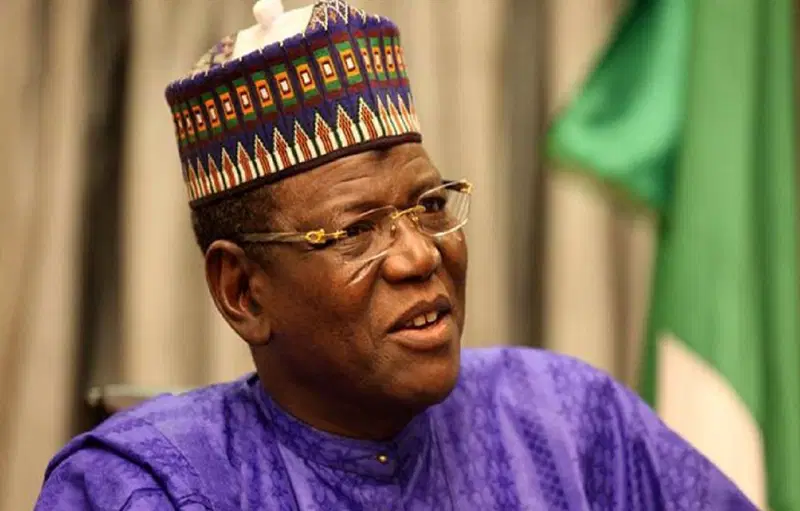Sule Lamido, a prominent figure in Nigerian politics, recounts a critical moment in his autobiography, "Being True to Myself," detailing a tense exchange with former President Goodluck Jonathan following the 2010 Eagle Square bombing. The incident, occurring during Nigeria’s 50th independence anniversary celebrations, cast a dark shadow over the festivities and ignited simmering ethnic tensions. Lamido’s narrative centers on Jonathan’s immediate reaction to the bombing, which Lamido perceived as deeply problematic and potentially divisive. Before any formal investigation had been conducted, Jonathan purportedly declared that "his people" were not responsible for the attack. This statement, while seemingly intended to absolve a particular ethnic group, ultimately served to fuel suspicion and sow discord within the nation.
Lamido, disturbed by Jonathan’s hasty conclusion and the potential ramifications of his words, sought a private audience with the President. He expressed his concern about the message Jonathan was sending, both domestically and internationally. Lamido argued that by disavowing responsibility on behalf of a specific group, Jonathan inadvertently implied that other Nigerians, potentially Northerners, were culpable. This, Lamido emphasized, was a dangerous precedent for a leader who should embody unity and represent all citizens, regardless of their ethnic or regional background. He reminded Jonathan that as President, all Nigerians were "his people," and that such divisive language could have severe consequences. The international community, Lamido pointed out, would interpret Jonathan’s words to mean that foreigners were responsible, further complicating an already sensitive situation.
Lamido’s account also reveals the prevalence of rumors and speculation circulating within the Presidential Villa. He mentions an encounter with an expatriate who informed him of whispers blaming Northerners for the attack. This, coupled with Jonathan’s public statement, created a troubling atmosphere of suspicion and distrust. Lamido directly confronted Jonathan with this information, expressing his dismay that the President had not intervened to quell such damaging rumors. The fact that these accusations were being made within the Presidential Villa itself, without any apparent attempt by Jonathan to address them, deeply concerned Lamido. He saw this as a sign that Jonathan was potentially isolating a significant portion of the Nigerian population and creating a dangerous divide within his own administration.
Beyond criticizing Jonathan’s initial response, Lamido also offered a blueprint for how a national leader should handle such a crisis. He urged Jonathan to address the nation with empathy and resolve, expressing solidarity with the victims and their families. He stressed the importance of reassuring all Nigerians, and particularly the international community, that the government was committed to a thorough investigation and bringing the perpetrators to justice. Lamido believed that Jonathan’s immediate priority should have been to project an image of strength and unity, assuring all citizens and foreign guests of their safety and security within Nigeria. Instead, by focusing on who was not responsible, Jonathan missed a crucial opportunity to unite the country in a moment of national tragedy.
To further illustrate his point, Lamido shared an anecdote about former President Olusegun Obasanjo, recalling how Obasanjo had resisted attempts by Yoruba leaders to draw him into narrow ethnic agendas. When pressured to attend a tribal meeting, Obasanjo forcefully asserted his identity as a national leader, representing all Nigerians and not just a single ethnic group. Lamido presented this example to Jonathan as a model of inclusive leadership, contrasting it with Jonathan’s seemingly parochial approach to the bombing incident. He emphasized the vital role of a president in transcending ethnic divisions and fostering a sense of shared national identity.
Throughout his recounting of the conversation, Lamido portrays himself as a forthright advisor offering candid counsel to a president in need of guidance. He describes delivering his message with firmness and clarity, leaving no room for misinterpretation. Jonathan’s reaction, as described by Lamido, is noteworthy for its passivity. He reportedly listened to Lamido’s impassioned plea without offering any rebuttal or defense. This silence, in Lamido’s view, was perhaps more telling than any verbal response could have been. It suggested, at least to Lamido, that Jonathan may have been receptive to the criticism but unwilling or unable to publicly acknowledge his missteps. The incident, as recounted by Lamido, serves as a stark reminder of the delicate balance of ethnic and regional politics in Nigeria and the crucial role of leadership in navigating such complexities.


